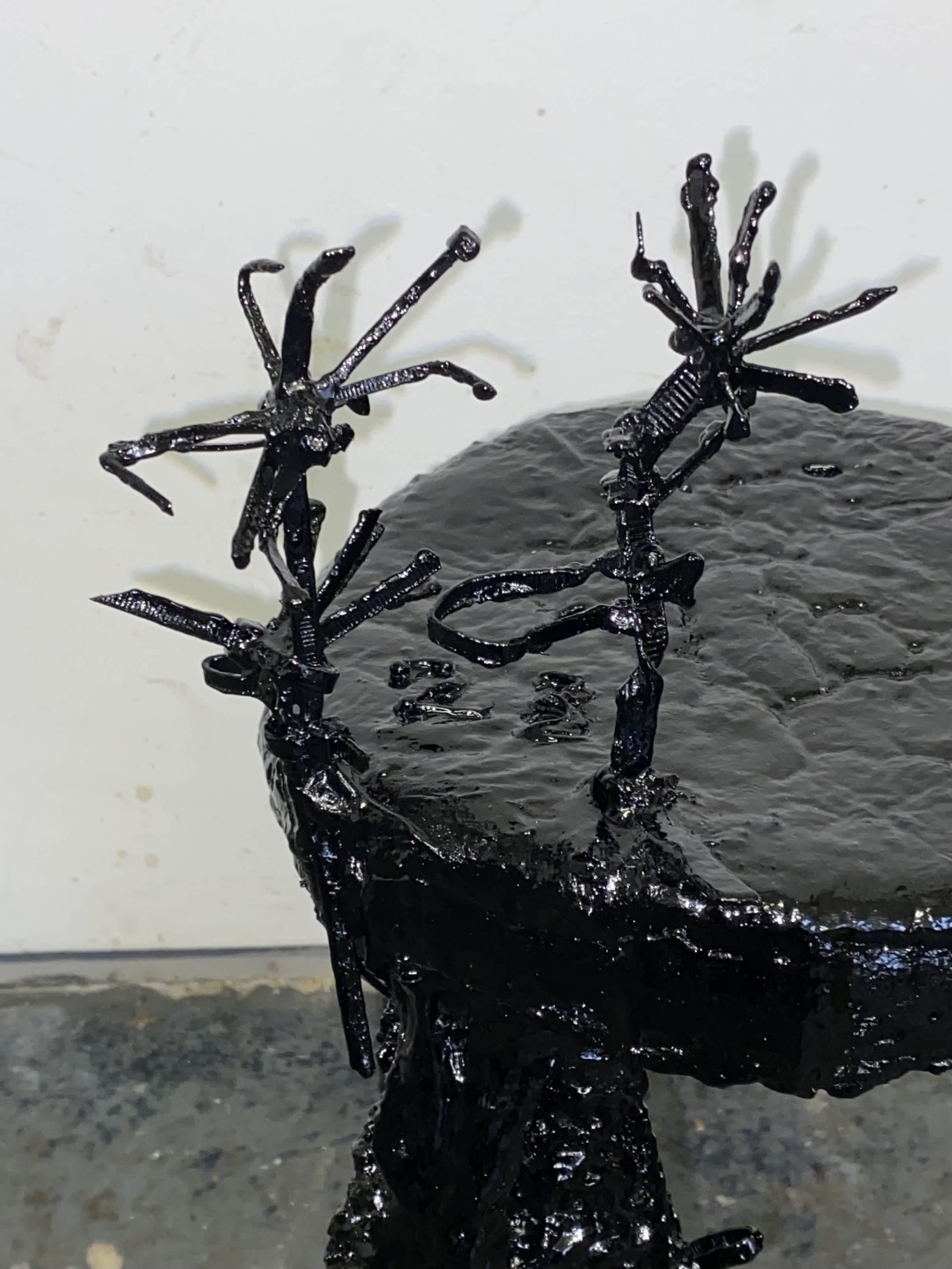All the world’s a stage is the second solo exhibition at the gallery from Marieke Bernard-Berkel (b. 1988, France), featuring new paintings on wood, canvas and fabric by the artist, alongside several tar-coated sculptural works from invited collaborator Tom Bull. This new body of work continues Bernard-Berkel’s investigation into landscape painting. Building on multiple canonical references, including expressionism, post-impressionism and psychedelic art, she utilises wild, overabundant colourways and impasto to convey a contemporary lens on the medium. The paintings begin with small drawings or photographs from books of predominantly-European countryside views, which the artist then paints over extended periods of...
All the world’s a stage is the second solo exhibition at the gallery from Marieke Bernard-Berkel (b. 1988, France), featuring new paintings on wood, canvas and fabric by the artist, alongside several tar-coated sculptural works from invited collaborator Tom Bull.
This new body of work continues Bernard-Berkel’s investigation into landscape painting. Building on multiple canonical references, including expressionism, post-impressionism and psychedelic art, she utilises wild, overabundant colourways and impasto to convey a contemporary lens on the medium. The paintings begin with small drawings or photographs from books of predominantly-European countryside views, which the artist then paints over extended periods of time, layering and distorting them until they give way to new realisations. Equally underscored by her background in set design, the works exhibit a certain theatricality in their built-out, maquette-like forms, and anti-naturalistic palette. The acidity with which she portrays these landscapes captures the sentiment of human subjectivity within a rapid, consuming, modern-day society.
Bernard-Berkel has also invited Tom Bull to exhibit a body of sculptural works as part of the exhibition. In parallel to her own practice, Bull pulls on tangential histories and associations to enact a tension between the language of an idealised rural environment, where he spent nineteen years of his life, and urbanisation. In recent works, he utilises the semiotics of countryside, combining it with materials such as car batteries, plastic cable ties, nitrous oxide canisters, and tar. These deliberately obtuse encounters fuse objects associated with the Shakers, mock Tudor, and cottagecore with matter evocative of the changes to rural life from the 18th century onwards, as well as the emergence of rave culture and the discussion it raises around ritualism and ownership.
The work is also reflective of Bull’s interest in personal and collective wellbeing, sharing, with Bernard-Berkel, a criticality of our contemporary condition, intimating the death drive as reflected in global patterns and behaviours for development, treatment of sickness and obsessive approaches to perfection.




